
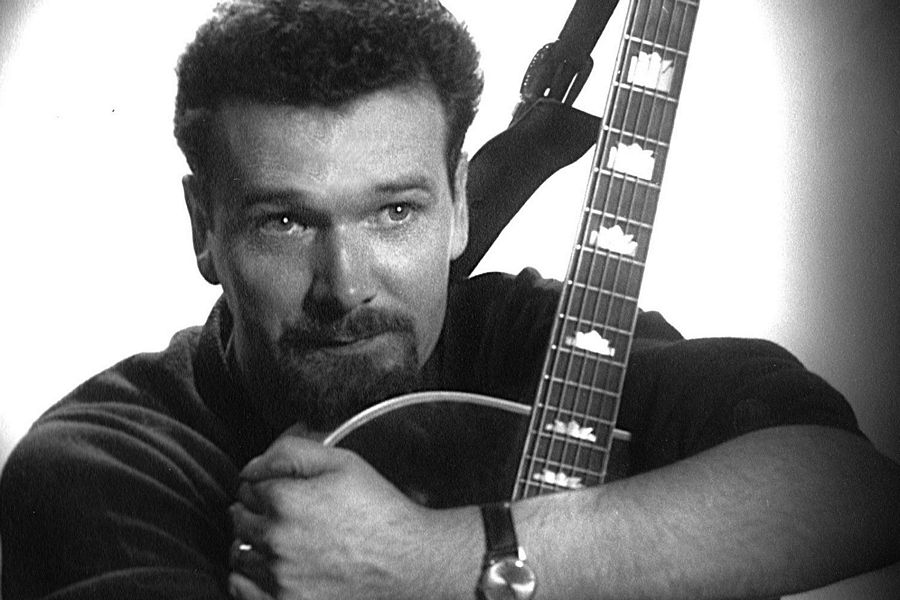
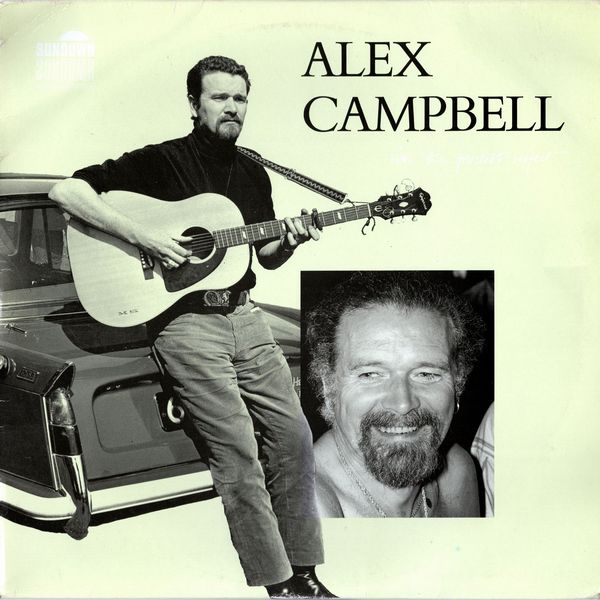 |
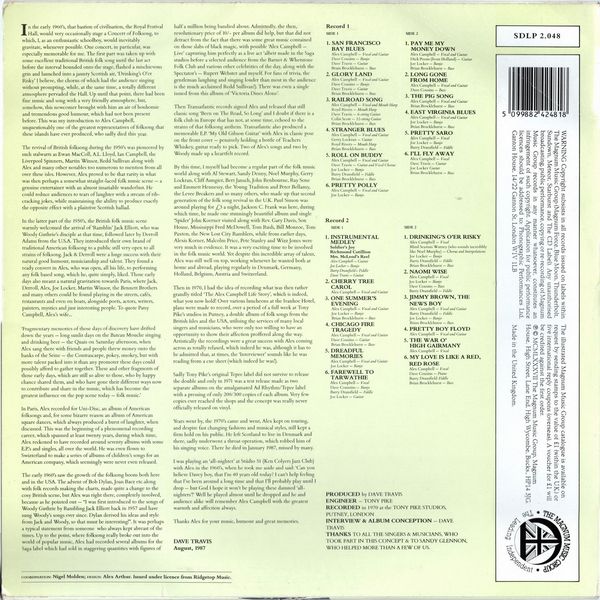
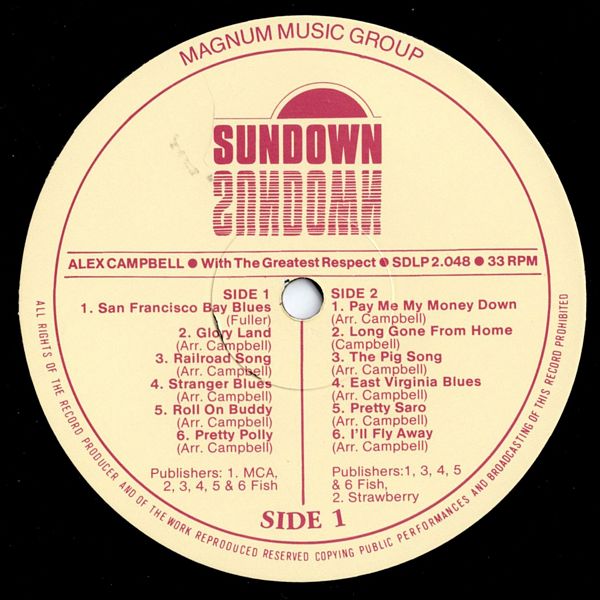
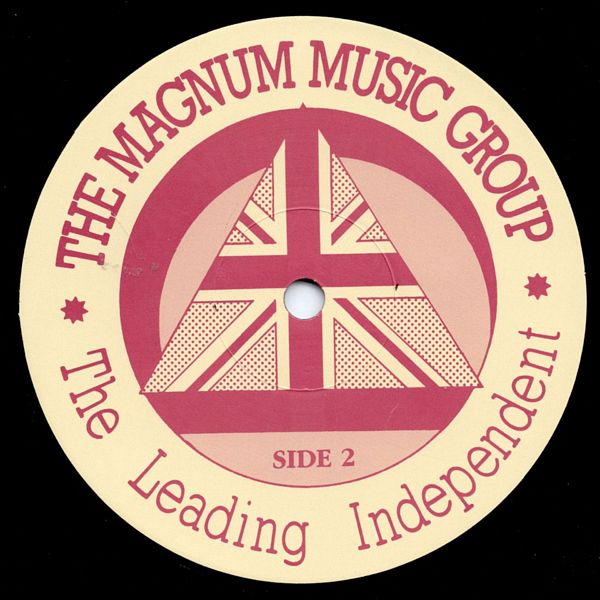
|
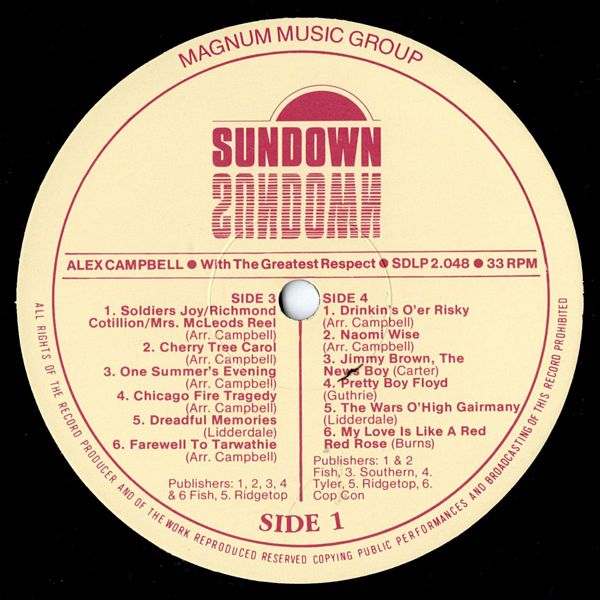
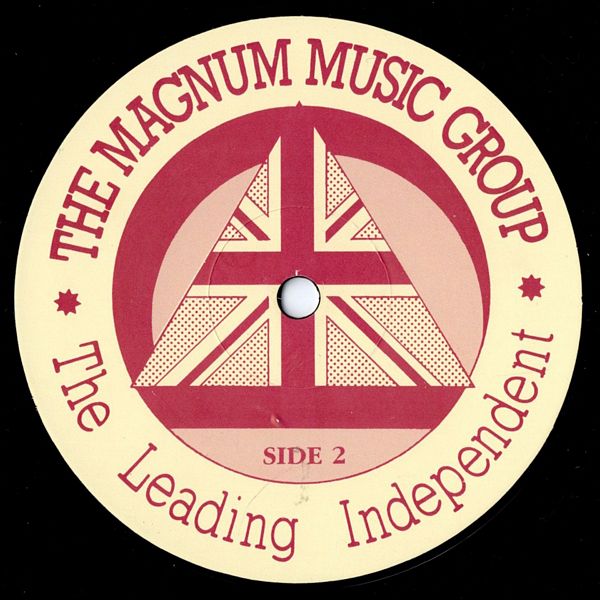
|
Sleeve Notes
In the early 1960's, that bastion of civilisation, the Royal Festival Hall, would very occasionally stage a Concert of Folksong, to which, I, as an enthusiastic schoolboy, would inevitably gravitate, whenever possible. One concert, in particular, was especially memorable for me. The first part was taken up with some excellent traditional British folk song until the last act before the interval bounded onto the stage, flashed a mischievous grin and launched into a jaunty Scottish air, " Drinking's O'er Risky" I believe, the chorus of which had the audience singing without prompting, while, at the same time, a totally different atmosphere pervaded the Hall. Up until that point, there had been fine music and song with a very friendly atmosphere, but, somehow, this newcomer brought with him an air of bonhomie and tremendous good humour, which had not been present before. This was my introduction to Alex Campbell, unquestionably one of the greatest representatives of folksong that these islands have ever produced, who sadly died this year.
The revival of British folksong during the 1950's was pioneered by such stalwarts as Ewan MacColl, A. L. Lloyd, Ian Campbell, the Liverpool Spinners, Martin Winsor, Redd Sullivan along with Alex and many other notables too numerous to mention from all over these isles. However, Alex proved to be that rarity in what was then perhaps a somewhat straight-laced folk music scene — a genuine entertainer with an almost insatiable wanderlust. He could reduce audiences to tears of laughter with a stream of rib-cracking jokes, while maintaining the ability to produce exactly the opposite effect with a plaintive Scottish ballad.
In the latter part of the 1950's, the British folk music scene warmly welcomed the arrival of "Ramblin" Jack Elliott, who was Woody Guthrie's disciple at that time, followed later by Derroll Adams from the U.S.A. They introduced their own brand of traditional American folksong to a public still very open to all strains of folksong. Jack & Derroll were a huge success with their natural good humour, musicianship and talent. They found a ready convert in Alex, who was open, all his life, to performing any folk based song, which he, quite simply, liked. Those early days also meant a natural gravitation towards Paris, where Jack, Derroll, Alex, Joe Locker, Martin Winsor, the Bennett Brothers and many others could be found playing in the streets, cafés, restaurants and even on boats, alongside poets, actors, writers, painters, mystics and just interesting people. To quote Patsy Campbell, Alex's wife...
"Fragmentary memories of those days of discovery have drifted down the years — long sunlit days on the Bateau Mouche singing and drinking beer — the Quais on Saturday afternoon, when Alex sang there with friends and people threw money onto the banks of the Seine — the Contrascarpe, pokey, smokey, but with more talent packed into it than any promoter these days could possibly afford to gather together. These and other fragments of those early days, which are still so alive to those, who by happy chance shared them, and who have gone their different ways now to contribute and share in the music, which has become the greatest influence on the pop scene today — folk music."
In Paris, Alex recorded for Uni-Disc, an album of American folksongs and, for some bizarre reason an album of American square dances, which always produced a burst of laughter, when discussed. This was the beginning of a phenomenal recording career, which spanned at least twenty years, during which time, Alex reckoned to have recorded around seventy albums with some E.P.'s and singles, all over the world. He was even flown to Switzerland to make a series of albums of children's songs for an American company, which seemingly were never even released.
The early 1960's saw the growth of the folksong boom both here and in the USA. The advent of Bob Dylan, Joan Baez etc. along with folk records making the charts, made quite a change to the cosy British scene, but Alex was right there, completely involved, because as he pointed out — "I was first introduced to the songs of Woody Guthrie by Rambling Jack Elliott back in 1957 and have sung Woody's songs ever since. Dylan derived his ideas and style from Jack and Woody, so that must be interesting!". It was perhaps a typical statement from someone who always kept abreast of the times. Up to the point, where folksong really broke out into the world of popular music Alex had recorded several albums for the Saga Label which had sold in staggering quantities with figures of half a million being bandied about. Admittedly, the then, revolutionary price of 10/– per album did help, but that did not detract from the fact that there was some great music contained on those slabs of black magic, with possible 'Alex Campbell — Live' capturing him perfectly as a live act, albeit made in the Saga studios before a selected audience from the Barnet & Whetstone Folk Club and various other celebrities of the day, along with the Spectator's — Rupert Webster and myself. For fans of trivia, the gentleman laughing and singing louder than most in the audience is the much acclaimed Redd Sullivan! There was even a single issued from this album of "Victoria Dines Alone".
Then Transatlantic records signed Alex and released that still classic song " Been on The Road, So Long" and I doubt if there is a folk club in Europe that has not, at some time, echoed to the strains of that folksong anthem. Transatlantic also produced a memorable E.P. "My Old Gibson Guitar" with Alex in classic pose on the front cover — pensively holding a bottle of Teachers whiskey, guitar ready to pick. Two of Alex's songs and two by Woody made up a heartfelt record.
By this time, I myself had become a regular part of the folk music world along with Al Stewart, Sandy Denny, Noel Murphy, Gerry Lockran, Cliff Aungier, Bert Jansch, John Renbourne, Ray Sone and Emmett Hennessy, the Young Tradition and Peter Bellamy the Levee Breakers and so many others, who made up that second generation of the folk song revival in the U.K. Paul Simon was around playing for £3 a night, Jackson C. Frank was here, during which time, he made one stunningly beautiful album and single "Spider" John Koerner visited along with Rev. Gary Davis, Son House, Mississippi Fred McDowell, Tom Rush, Bill Monroe, Tom Paxton, the New Lost City Ramblers, while from earlier days, Alexis Korner, Malcolm Price, Pete Stanley and Wizz Jones were very much in evidence. It was a very exciting time to be involved in the folk music world. Yet despite this incredible array of talent, Alex was still well on top, working whenever he wanted both at home and abroad, playing regularly in Denmark, Germany, Holland, Belgium, Austria and Switzerland.
Then in 1970, I had the idea of recording what was then rather grandly titled "The Alex Campbell Life Story", which is indeed, what you now hold! Over various luncheons at the Ivanhoe Hotel, plans were made to record, over a period of a full week at Tony Pike's studios in Putney, a double album of folk songs from the British Isles and the USA, utilising the services of many local singers and musicians, who were only too willing to have an opportunity to show their affection proffered along the way. Artistically the recordings were a great success with Alex coming across as totally relaxed, which indeed he was, although it has to be admitted that, at times, the "Interviewer" sounds like he was reading from a cue sheet (which indeed he was!).
Sadly Tony Pike's original Tepee label did not survive to release the double and only in 1971 was a test release made as two separate albums on the amalgamated Ad Rhythm/Tepee label with a pressing of only 200/300 copies of each album. Very few copies ever reached the shops and the concept was really never officially released on vinyl.
Years went by, the 1970's came and went, Alex kept on touring, and despite fast changing fashions and musical styles, still kept a firm hold on his public. He left Scotland to live in Denmark and there, sadly underwent a throat operation, which robbed him of his singing voice. There he died in January 1987, missed by many.
I was playing an "all-nighter" at Studio 51 (Ken Colyers Jazz Club) with Alex in the 1960's, when he took me aside and said: "Can you believe Davey boy, that I'm 40 years old today? I can't help feeling that I've been around a long time and that I'll probably play until I drop — but God I hope it won't be playing these damned 'all-nighters'!" Well he played almost until he dropped and he and audience alike will remember Alex Campbell with the greatest warmth and affection always.
Thanks Alex for your music, humour and great memories.
Dave Travis
August, 1987